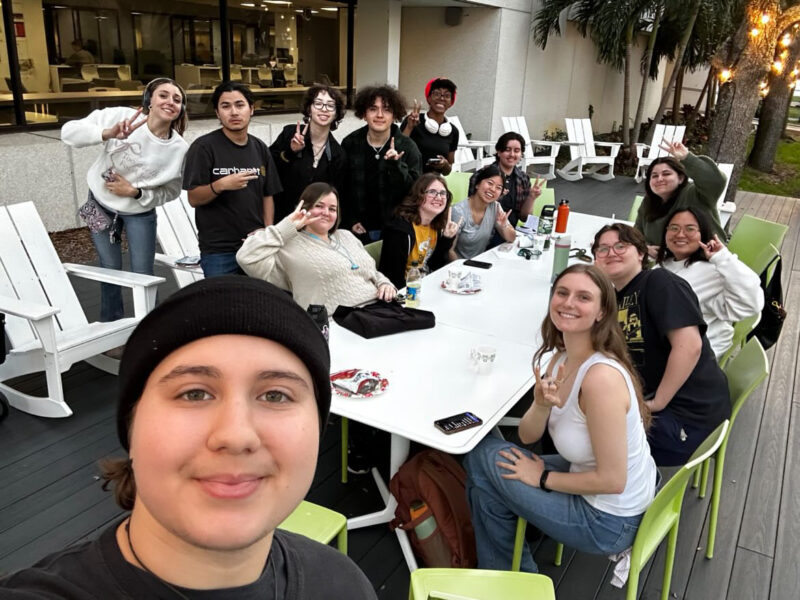The Book of Mormon arrived in Tampa last week, and the Bay area refused to shut the door in its face.
The infamous and critically acclaimed Broadway show # brought to you by the creators of South Park, Trey Parker and Matt Stone # was enthusiastically received by patrons of the Straz Theater in Tampa.
The Book of Mormon has gained a reputation for the exodus of more pious audience members during intermission, but the seats remained filled to near capacity for the entirety of the play # and for good reason.
The play ignites with the quintessential South Park flare when the voices of Parker and Stone make a brief cameo as Mormon the Nephite and Jesus.
The stage scenery was beautiful. Parker and Stone seamlessly transport you from Salt Lake City to Uganda, and even Orlando, which happens to be part of the protagonist’s hellish nightmare. The stage crew demonstrated the speed and professionalism indicative of Broadway. The rapid transition of the elegant, multi-layered set left me awestruck.
The music is catchy and profane in a way that is reminiscent of the movie South Park: Bigger Longer, and Uncut. As the crowd exited the theater, patrons could be heard humming and singing to the tune “Hasa diga Eebowai!” a phrase too offensive to be translated in this article.
The characters were lovable. Elder Price, the morally upright and eager young Mormon missionary played by David Larsen, led the show with his superb vocals and high energy on stage.
The crowd’s favorite character was without a doubt Elder Cunningham, played by Cody Jamison Strand. He played the goofy sidekick who nearly drew the audience to tears # of laughter # with his knowledge and presentation of Mormon scripture, or lack thereof. After promising hope to the terrorized Ugandan tribe, the adorable black sheep of the Mormon missionaries supplements his lack of biblical knowledge with references to Star Wars and The Lord of the Rings, and it is surprisingly compelling.
Even the malevolent Ugandan General, whose full name is too vulgar to be written in this publication, ended the play with the good graces of the audience.
At face value, the subject matter seems vulgar, tasteless and highly offensive. The play makes jokes about AIDS, fornicating with infants and animals, maggots in one poor soul’s scrotum, and it even depicts baptism as a sexual experience.
The message that Parker and Stone blatantly convey is that religion is ridiculous and should not be taken literally. On the same token, however, the overarching moral of the Book of Mormon is that no matter how dubious religion may be, it still has the power to help people accomplish a whole lot of good.


